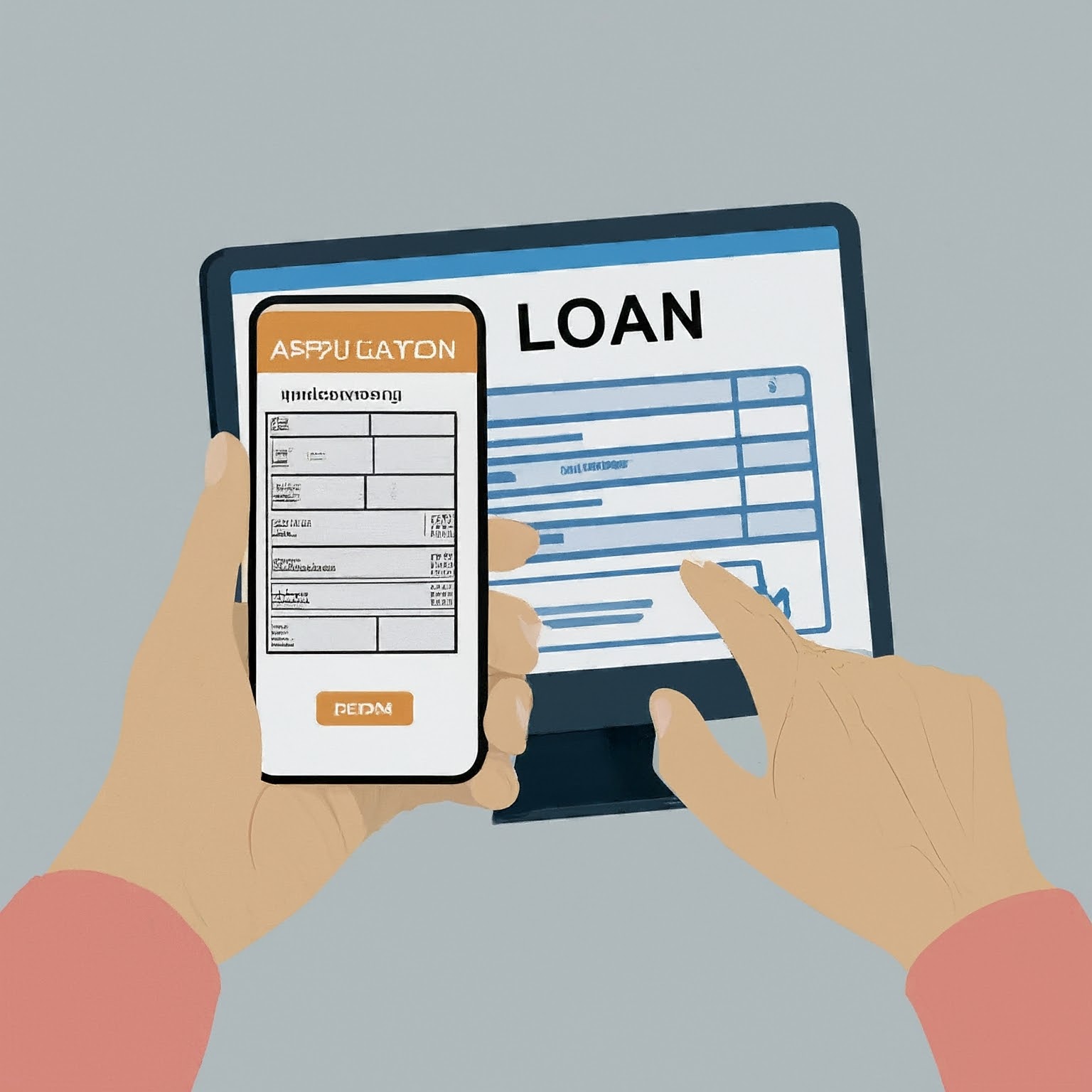Home Loan
Fast Home Loans in Just 48 - 72 Hours with Skara Financial Services!
Need your dream home sooner? With Skara Financial Services, you can get approved for a home loan in as little as 24 hours. Our hassle-free application process ensures that you have access to competitive rates and flexible terms quickly, so you don’t have to wait to make your move.
Why Choose Skara?
- Quick Approval: Get your home loan approved within 24 hours!
- Competitive Interest Rates: Access some of the best rates from multiple lenders.
- Flexible Loan Terms: Tailored loan amounts and repayment options to fit your needs.
Don’t let delays slow down your dream of owning a home—apply for a fast home loan today with Skara Financial Services!
Skara Financial Services
Home Loan: A Complete Guide
Introduction to Home Loans
A home loan is a secured loan that helps individuals buy, build, or renovate their homes. In India, where the real estate market is growing rapidly, owning a home has become a primary goal for many. A home loan offers the financial flexibility to achieve this goal while repaying the amount over time in easy installments. This guide will delve into the intricacies of home loans, the various schemes available, eligibility, and much more, specifically tailored for the Indian audience.
Indian Government Housing Schemes
- Pradhan Mantri Awas Yojana (PMAY): Launched to provide affordable housing for all by 2022 with an interest subsidy for certain income groups (Economically Weaker Sections, Low-Income Group, Middle-Income Groups).
- Eligibility: Income, family size, and homeownership status.
- Subsidy Details: Up to 6.5% interest subsidy under CLSS.
- Affordable Housing Schemes: State-level initiatives like:
- DDA Housing Scheme (Delhi)
- MHADA (Maharashtra)
- Bangalore Housing Scheme
- Indira Awas Yojana (IAY): A rural-focused scheme for the economically weaker sections, providing funds for housing.
Private Sector Housing Schemes
- Private Builder Schemes: Builders often have tie-ups with banks, offering special loans with reduced interest rates or easy repayment terms for properties they are developing.
- Affordable Housing Projects: Leading real estate firms (Tata, Godrej, Sobha) offer housing solutions with partnerships with banks and NBFCs to provide home loans tailored to buyers’ needs.
Monthly EMI: ₹ 10,746.95
Total Amount Payable: ₹ 6,44,817.01 (Principal + interest)
Principal Amount: ₹ 5,00,000
Total Interest Payable: ₹ 1,44,817.01
Interest Rates & Latest Trends in India
- Fixed vs Floating Rates: Fixed rates remain constant, while floating rates vary with market conditions. Each has its benefits depending on market conditions.
- Repo Rate Impact: The Reserve Bank of India’s (RBI) repo rate changes affect floating loan rates. Recent trends show fluctuating interest rates as per monetary policies.
- Current Best Offers: Banks like SBI, HDFC, ICICI offer competitive rates as low as 6.7% based on income, tenure, and credit score.
Home Loan Process in India
- Pre-Approval: Pre-approval gives you a tentative loan amount you qualify for based on your credit profile.
- Loan Application: Involves submitting documents (KYC, income proof, property details).
- Loan Sanction: The bank evaluates your application and property, followed by sanctioning a specific loan amount.
- Disbursement: The loan is disbursed to the seller or builder, often in stages for under-construction properties.
Government Policies and Their Impact on Home Loans
- RERA (Real Estate Regulatory Authority): Protects homebuyers by enforcing accountability and transparency in real estate projects.
- GST on Housing: Affects the cost of under-construction properties, but ready-to-move-in homes are GST exempt.
- Stamp Duty & Registration: Varies by state, generally 5-7% of property value, but some states offer concessions for first-time buyers and women.
Tax Benefits on Home Loans
- Section 80C: Allows deduction of up to ₹1.5 lakh per year on the principal repayment of home loans.
- Section 24(b): Deduction of up to ₹2 lakh on interest paid for a self-occupied home.
- Joint Loans: Tax benefits can be split between co-owners, maximizing deductions.
- First-Time Buyers: Additional deductions for first-time buyers under Section 80EEA.
Challenges Faced in Availing Home Loans
- Interest Rate Sensitivity: High-interest rates impact affordability for middle-income families.
- Legal Discrepancies: Property titles, unclear ownership records can delay or reject loans.
- Loan Rejection Causes: Poor credit score, incomplete documentation, and high debt-to-income ratio.
- Solutions: Improving credit score, seeking professional guidance for documentation.
Role of NBFCs in Home Loans
- NBFCs (Non-Banking Financial Companies): Offer home loans to individuals who may not qualify with traditional banks, especially for those with non-standard income proof.
- Popular NBFCs: Bajaj Finserv, LIC Housing Finance, and Indiabulls Housing Finance.
- Differences from Banks: Easier approval processes, slightly higher interest rates, but more flexible terms.
Digital Transformation in Home Loans
- Online Applications: Many banks and NBFCs now offer fully digital loan processes, reducing paperwork and processing time.
- Instant Approvals: With AI tools, lenders can quickly assess creditworthiness and approve loans within hours.
- Fintech Players: Platforms like Paisabazaar and BankBazaar allow users to compare loan offers, apply online, and track applications digitally.
Prepayment and Foreclosure Options
- Prepayment Charges: Some banks charge for prepaying the loan before the tenure ends, though many waive fees for floating-rate loans.
- Benefits: Reduces the interest burden and tenure.
- Foreclosure: Completely closing a loan before its term, which can save significant interest costs.
- Decision Factors: Consider liquidity, other financial goals, and tax benefits.
Importance of Insurance with Home Loans
- Home Loan Insurance: Protects borrowers and their families in case of death, disability, or critical illness. It ensures that the outstanding loan amount is paid off in case of such events.
- Types: Term insurance, reducing cover linked to loan outstanding.
- Benefits: Ensures family is not burdened with loan repayment in unforeseen circumstances.
Home Loan Balance Transfer
- What It Is: Transferring your loan to another lender for lower interest rates or better terms.
- Process: Check outstanding loan amount, apply to a new lender, and the new lender pays off your existing loan.
- Pros & Cons: Potentially lower interest rates but involves processing fees. Useful when rates drop significantly.
Tips for Reducing Your Home Loan Interest
- Shorter Tenure: Opting for a shorter tenure reduces overall interest payments, though EMIs are higher.
- Timely Payments: Always pay EMIs on time to avoid penalties and keep credit scores high.
- Prepayments: Lump-sum prepayments can significantly reduce the loan tenure and interest.
- Negotiation: Often, lenders are open to reducing rates for long-term customers with good repayment records.
Home Loan Repayment Structures
- EMI vs Pre-EMI: EMI is a fixed monthly payment that includes both principal and interest, whereas Pre-EMI only covers interest during the construction period.
- Bullet Repayments: Involves paying larger sums at specific intervals.
- Step-Up/Step-Down EMIs: In a step-up plan, the EMI increases over time, whereas in a step-down plan, the EMI decreases over time.
Special Home Loan Offers for Women
- Lower Interest Rates: Many banks offer interest rate concessions (0.05%-0.1%) to women borrowers.
- Ownership Incentives: PMAY mandates that the house should be in the name of the female family member to avail of full benefits.
- Joint Loans: Women borrowers are often encouraged with joint ownership to benefit from tax incentives.
Conclusion: Choosing the Right Home Loan in India
- Balancing Tenure and Interest: Select a loan tenure that balances EMI affordability and total interest paid.
- Government vs Private Schemes: Evaluate government subsidies like PMAY, compare with private sector offers, and choose based on affordability and convenience.
Home Loan FAQs
What is a home loan?
What are the types of home loans available in India?
What is the Pradhan Mantri Awas Yojana (PMAY)?
What are the eligibility criteria for a home loan?
What is the difference between fixed and floating interest rates?
How do I apply for a home loan?
What are the tax benefits of taking a home loan?
What is a home loan balance transfer?
What is a pre-EMI?
What are the challenges faced in getting a home loan?
Can NRIs apply for home loans in India?
How does the interest rate on home loans change?
What are the benefits of prepaying or foreclosing a home loan?
What is the importance of credit score in a home loan application?
What documents are required for a home loan application?
Are there special home loan offers for women in India?
What is the maximum tenure for a home loan in India?
What is the role of NBFCs in home loans?
How does RERA affect home loans?
What is home loan insurance?
Get Your Home Loan with Skara Financial Services!
Looking to purchase your dream home? Skara Financial Services offers competitive home loan options to help make homeownership a reality. Whether you’re a first-time buyer or refinancing, our simple process and flexible terms are designed to suit your needs.
How It Works:
1. Apply Online: Complete our quick and easy application.
2. Get Pre-Approved: Receive instant pre-approval with competitive interest rates.
3. Close Quickly: Enjoy a smooth and fast closing process with expert guidance.
Turn your dream into a reality—apply for your home loan today with Skara Financial Services!


Home Loan Interest Rate with Skara Financial Services
Home loan interest rates from some major Indian banks
– State Bank of India (SBI): Rates range from 9.15% to 10.15% depending on the loan amount and borrower profile.
– HDFC: Offers one of the lowest rates, starting at 8.40%.
– Axis Bank: Interest rates begin at 8.50%.
– ICICI Bank: Interest rates for salaried borrowers start at 9.25% and for self-employed individuals at 9.40%.
– Punjab National Bank: Rates start from 8.45% for salaried and 8.50% for self-employed individuals.
Interest rates vary based on the loan amount, the applicant’s credit score, and the specific loan terms.
You may also find slightly higher rates for larger loan amounts or individuals with lower credit scores. Additionally, floating rates are subject to market fluctuations.
Make sure to compare offers from different banks and check for additional fees such as processing charges when considering a home loan.
Get started today
Skara Financial Services makes it simple! Whether you need funds for an emergency, a big purchase, or debt consolidation, we’re here to help.
